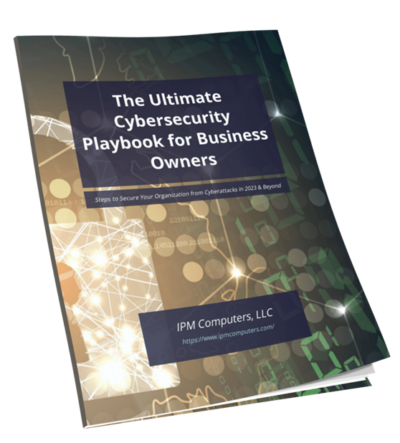From financial institutions to healthcare providers, businesses across a wide range of industries are facing unprecedented threats from cyber attackers seeking to exploit vulnerabilities in their systems. With the increase in attacks, both in volume and sophistication, the need for cybersecurity in Myrtle Beach measures has never been more urgent.
Every business, no matter how big or small, and no matter the industry, needs proper security. However, some industries need additional layers of protection due to the data and services they provide, as businesses in these industries contain a lot of sensitive and valuable data that hackers love to obtain. For this reason, engaging with an MSP in Myrtle Beach SC is a wise decision that can give your organization a strategic advantage.
Below, we’ll explore the top industries that are most at risk and in need of comprehensive cybersecurity solutions to safeguard their sensitive data and protect against potential breaches.
Healthcare Organizations
Businesses in the healthcare industry are at extremely high risk when it comes to cybersecurity threats. The vast amount of sensitive patient data stored within healthcare systems makes them a prime target for cyber attackers looking to steal valuable information or disrupt operations.
Healthcare organizations must work diligently to protect this data and ensure that their networks are secure from potential breaches.
One key aspect of protecting patient data in the medical sector is implementing robust cybersecurity measures that can help detect and prevent unauthorized access to sensitive information. This includes encrypting data, regularly updating security patches, monitoring network activity for suspicious behavior, and training staff on best practices for maintaining a secure environment.
Banks and Financial Institutions
Financial institutions are also prime targets for cyber attackers due to the vast amounts of sensitive financial data they possess.
Banks and financial institutions must stay ahead of cyber threats by fortifying their cybersecurity defenses to protect against potential breaches that could compromise the security and privacy of their customers’ information
The banking industry faces a unique set of challenges when it comes to cybersecurity, as hackers are constantly refining their tactics to breach systems and steal valuable data. To combat this threat, financial institutions must implement comprehensive security measures, such as encryption protocols, multi-factor authentication, and regular system monitoring. Establishing a strong defense system and continuously updating security infrastructure helps create a financial fortress that safeguards both company and client assets.
Financial institutions must also be vigilant in detecting internal vulnerabilities that could put them at risk. This requires ongoing training for employees on best practices for safeguarding sensitive information and ensuring compliance with regulations governing data protection.
Manufacturing Firms
Manufacturers also face significant cybersecurity challenges due to the increasing interconnectedness of their operations. As factories and production facilities adopt more advanced technologies such as Internet of Things (IoT) devices, robotics, and automation systems, they become more vulnerable to cyber threats.
Hackers can target these critical systems to disrupt operations, steal intellectual property, or cause financial losses. Without adequate cybersecurity measures in place, manufacturers risk facing costly downtime and reputational damage.
Supply chain vulnerabilities also pose a major threat to manufacturing companies. As businesses rely on a complex network of suppliers and partners to deliver raw materials and components, any weak link in the chain can expose them to cyber risks. A breach in a supplier’s system could have ripple effects across multiple organizations within the industry. It’s crucial for manufacturers to prioritize cybersecurity defenses to protect their own in-house operations while helping improve the security the entire supply chain ecosystem.
To address these challenges effectively, manufacturing companies must invest in robust cybersecurity solutions tailored to their specific needs.
This may include implementing security protocols for IoT devices, conducting regular vulnerability assessments, training employees on best practices for data protection, and leveraging cutting-edge technologies like artificial intelligence and machine learning for threat detection and response.
E-Commerce
With an increasing number of consumers turning to online shopping for convenience and accessibility, retailers are faced with the challenge of securing their platforms against potential data breaches and malicious attacks.
Managed solutions provide a comprehensive suite of cybersecurity solutions tailored specifically for online retailers, helping them strengthen their defenses and mitigate risks associated with conducting transactions over the internet.
One of the key features offered is advanced threat detection capabilities that monitor and detect unauthorized access attempts, suspicious activities, or malware infections on e-commerce websites.
By proactively identifying potential security vulnerabilities, retailers can take immediate action to prevent data loss or financial fraud before it escalates into a full-blown cyber-attack.
There are also encryption protocols to secure customer information during transmission and storage, ensuring that sensitive data such as payment details or personal identifiers are protected from prying eyes.
Schools and Universities
Educational institutions, such as schools and universities, have become prime targets for cyber attackers due to the vast amount of sensitive information they store, including student records, financial data, and research findings.
In recent years, there’s been a rise in ransomware attacks on educational organizations, with hackers demanding large sums of money in exchange for unlocking encrypted files. These breaches not only pose a threat to the security and privacy of students and faculty members, they also disrupt the learning environment and can result in costly consequences for the institution.
To combat these growing threats, education institutions must prioritize cybersecurity measures to protect their digital assets and networks. This includes implementing robust firewalls, encryption protocols, multi-factor authentication systems, and regular security audits to identify vulnerabilities before they are exploited by malicious actors.
Raising awareness among staff members and students about safe cybersecurity practices is essential in fostering a culture of vigilance against phishing attempts and social engineering scams that aim to compromise sensitive information.
By taking proactive measures to secure their systems and data from potential breaches, schools and universities can ensure continuity while maintaining the trust of students, parents, alumni, donors, government agencies, and other stakeholders.
Why an IT Team Matters for Cybersecurity
Managed IT is responsible for implementing security measures, monitoring systems for potential threats, and responding to incidents promptly. Without a skilled IT team in place, businesses are vulnerable to cyber-attacks that can result in financial losses, reputational damage, and regulatory fines.
In industries where sensitive data is stored and processed daily, the need for strong cybersecurity measures is particularly pronounced. An IT team specialized in understanding the unique challenges faced by these sectors can implement tailored solutions to protect against sophisticated attacks and ensure compliance with industry regulations.
Having an experienced IT team also helps build resilience against emerging cyber threats that continue to evolve at an alarming rate. These professionals stay up to date on the latest trends in cybercrime and work proactively to strengthen defenses before vulnerabilities are exploited by cyber attackers.
MSP in Myrtle Beach SC: Managed IT Providers vs In-House IT Staff
As organizations contemplate their cybersecurity needs, choosing between Managed IT services and an in-house team is critical. Managed IT providers offer round-the-clock monitoring, threat detection, and incident response capabilities that are often beyond the scope of internal teams. This proactive approach to security allows companies to stay ahead of emerging threats and quickly respond to potential breaches before they escalate. In contrast, relying solely on in-house resources can leave organizations vulnerable to gaps in expertise or limited capacity to address complex security challenges.
Managed IT providers typically have access to advanced tools and technologies that may not be feasible for smaller in-house teams to acquire or maintain. By leveraging these resources, companies can enhance their overall security posture and better defend against sophisticated cyber-attacks that target specific industries or niches.
However, there are scenarios where have a combination of in-house IT and working with a managed IT proivder is beneficial. This is referred to as co-managed IT, and provides a number of advantages. Having experts on call can help supplement your in-house team’s efforts and allow them to draw on specialties that they may not have. In-house staff can also offload a number of tasks to an MSP, which frees them up to focus on the work needed on-site.
Ultimately, partnering with a trusted Managed IT provider can provide organizations with peace of mind knowing that their data is protected by skilled professionals who are dedicated to staying abreast of the latest cybersecurity trends and best practices.
Leveraging Managed IT to Thwart Cybercrimes
To effectively combat the growing threat of cybercrime, industries must come together to form a unified front. Cyber criminals are constantly improving their tools and techniques while finding new ways to penetrate systems, making it imperative for businesses across all sectors to prioritize cybersecurity measures.
Collaboration with a Myrtle Beach managed IT team can help develop more robust cybersecurity solutions tailored specifically to address the unique challenges faced by your organization.
This approach can strengthen defenses against cyber threats while fostering a culture of shared responsibility and cooperation in the fight against cybercrime. Through ongoing dialogue and collaboration with an MSP, your business can stay one step ahead of malicious actors to ensure business continuity and maintain consumer trust.





